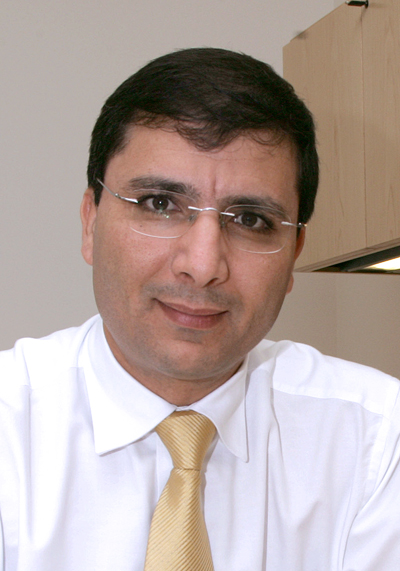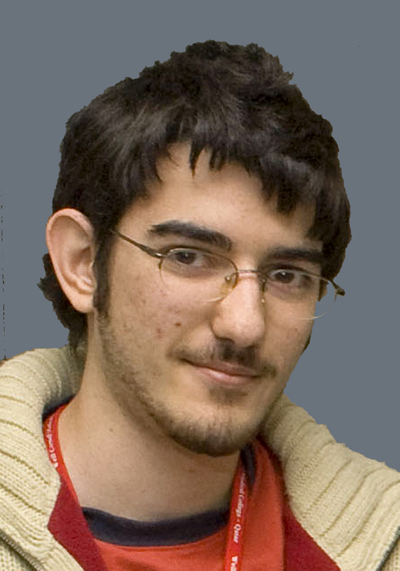WCMC-Q researchers excel at QF Annual Research Forum
November, 2012

Dr. Lotfi Chouchane, WCMC-Q’s assistant dean for basic science
curriculum and professor of genetic medicine and immunology
Researchers from Weill Cornell Medical College in Qatar won two prestigious awards at Qatar Foundation’s third Annual Research Forum held at Qatar National Convention Centre in Doha.
The pair were among a group of 12 professional and student researchers who were formally recognized for their groundbreaking discoveries in the past year.
Dr. Lotfi Chouchane, WCMC-Q’s assistant dean for basic science curriculum and professor of genetic medicine and immunology, scooped the award for best Health and Biomedical Research Program of the Year in collaboration with Brown University in the United States; the United States’ National Institutes of Health; and Hamad Medical Corporation in Qatar, for how the TNRC9 (TOX3) gene down regulates BRCA1 expression and promotes breast cancer aggressiveness.
Dr. Chouchane said he was delighted with the success and it was a tribute to diligence and hard work. “We are hoping to build upon the foundations of our work and it is a tribute to many gifted and talented members of the team that contributed to our success,” he said.
WCMC-Q third-year medical student Maen Abou Ziki was awarded the Best Student Health and Biomedical Research of the Year award in collaboration with Weill Cornell Medical College in New York; and Hamad Medical Corporation for the study into the high prevalence of the ApoE Arg145Cys dyslipidemia at-risk polymorphism in African-derived populations.

Third-year medical student Maen Abou Ziki
Maen’s study focused on the unusually high occurrence of dyslipidemia in Qatar.
“No one knew the mutation was so prevalent,” he said. “This is fresh data and the project needs a lot of follow-up, but at least we can now advise people on how to monitor their lifestyle if they know they have this mutation.
“In only one year, we were able to make phenomenal progress on this project. It started in Qatar then we transitioned to the New York City metropolitan population and then we studied the worldwide populations using the 1000 Genomes Project Consortium. Also, when studying the dyslipidemia phenotype in our patients we had to transition multiple times between the lab and the clinic. This study which was carried out under the supervision of Dr. Ronald Crystal, chairman of the department of genetic medicine, is truly a translational research project with direct clinical implications.”
